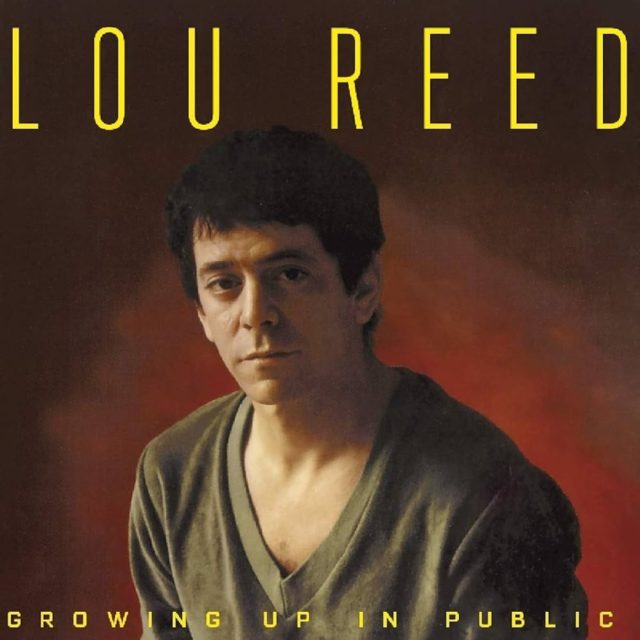 I have always considered myself a Lou Reed fan — but maybe I’m not. Or at least not an indiscriminate one — especially when it comes to his solo output. After leaving The Velvet Underground, the late legend made 20 studio albums as a solo artist, along with two more collaborations. Of those albums, I was only familiar with five. So I decided to listen to and review the remaining 15. At times it was like torture.
I have always considered myself a Lou Reed fan — but maybe I’m not. Or at least not an indiscriminate one — especially when it comes to his solo output. After leaving The Velvet Underground, the late legend made 20 studio albums as a solo artist, along with two more collaborations. Of those albums, I was only familiar with five. So I decided to listen to and review the remaining 15. At times it was like torture.
In a nutshell, Reed has a big basket of bonafide classics. Unique, unmistakable and ground-breaking songs which combine poetry and prose with a variety of music styles. But he also recorded a fly-ridden heap of awful, awful songs featuring his distinctive but poor singing, along with excessive sax and fretless bass.
Here’s one of the entries in his uneven catalog:
Lou Reed self-produced this 1980 album with the help of Michael Fonfara — the future keyboardist for the Downchild Blues Band — at George Martin’s AIR Studio in Montserrat. Not a bad place to spend six weeks in January and February. Even better: This record is a huge improvement on the failed artistic experiment of The Bells. This is a rock record, thank goodness.
This feels like an autobiographical record. It opens with How Do You Speak To An Angel. This would actually make a good thrash tune, properly adjusted. It has too many words. They frequently don’t fit and don’t fall into the pocket. This track does have a cool, menacing bridge, though. Very theatrical. This is followed by a breakdown to hand claps and vocals, which briefly goes from ‘theatrical’ all the way up to ‘Broadway musical’ before the end. It’s something like a cross between Joe Cocker and Cookie Monster taking over a Rough Trade concert.
Finally, we get our first great Reed song in almost four years: I Love My Old Man. It’s vintage Lou with notes of punk (sans power chords). Keep Away is next and answers the musical question “Why is the dude from Downchild here?” It’s a boogie, complete with Georgia Satellites guitars. It’s not bad, but technically, neither is the Toothbrush Family Theme.
The title track follows. Pretty good, this one. The vocal phrasing is more like classic Lou, while the speed and sparsity of the arrangement leave the necessary room for his many, many words. The main hook is a constant, repeating six-note sliding bass lick. To my ear, it would be cooler with a tuba. Standing On Ceremony wraps the side with something that sounds like it came off one of Alice Cooper’s early ’80s albums. Mostly this one is badly dated, the same way Pat Benatar is dated, except with awkward, introspective, personal lyrics.
The other song on this record that I really like, So Alone, is the first song on the second side. If the last one was Benatar, this one is Joe Jackson. Thus, less dated. It also has an arrangement more conducive to Lou’s torrent of words, words, words, words. I happen to think this one is quite effective. Love Is Here to Stay, meanwhile, is a bit of a miss. It sounds like it should be part of a non-existent musical. The lyrics are great, but the music is lame, dated and not terribly Lou-like.
Then we have The Power of Positive Drinking, which was released as a single. It failed to chart, chiefly because it is not a good song and has a stupid pun for a title. This is only a half-step away from The Irish Rovers, if they were from New York. The chorus is shockingly bad. Smiles is next, and is better. The lyrics are fantastic, but the music DOES NOT FIT. This is jingle music. It’s like being told all about Lou’s overreaching parents to the tune of a pizza commercial.
Think It Over starts beautifully, with gentle, catchy fingerpicked noodling on electric guitar. As I’ve written elsewhere, a lot of Lou’s music kept the sparse, Mo Tucker-style drum approach of The Velvet Underground. Too bad he didn’t take that approach on this one. That’s what’s missing here. Get rid of the traditional drums and piano, add Mo and you’ve got a great song.
Finally, we get Teach The Gifted Children. This one works because it actually has the kind of arrangement Think It Over requires. There’s nothing to dislike about this one, especially in contrast to much of his work during this era.
3/5
• • •
Area Resident is an Ottawa-based journalist, recording artist, music collector and re-seller. Hear (and buy) his music on Bandcamp, email him HERE, follow him on Instagram and check him out on Discogs.









































